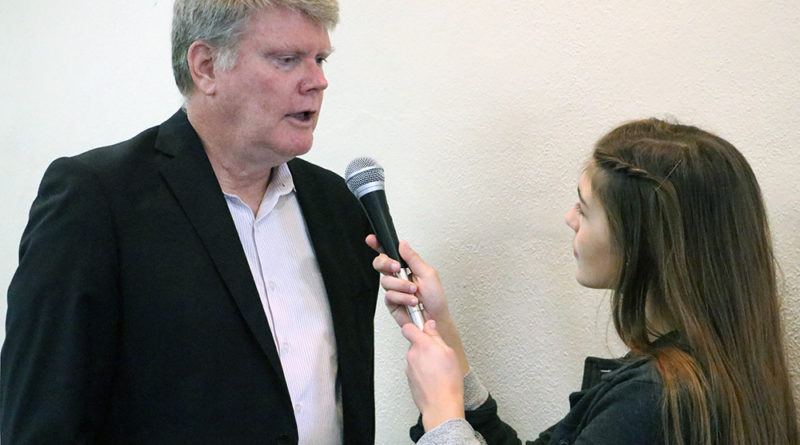Lawmakers on #MeToo: “It starts with us”
Sexual harassment and assault are problems at the state Capitol and throughout California, and both leaders and members of the public need to do more to stop them, several lawmakers said.
The Olympian joined news organizations from all over California on Feb. 21 in Sacramento. State legislators gave speeches, which almost all addressed the #MeToo movement.
Since October, numerous female lobbyists and staffers at the Capitol have accused legislators of sexual misconduct. Assemblyman Mark Stone (D-Santa Cruz) devoted most of his speech to the subject.
“There are a number of cases where there have been settlements for somebody who has complained, but the problem is the victim in that case ends up losing their ability to stay in the legislature,” said Stone. “They’re victimized again, and again, and again.”
Sexual harassment cases often end in settlement, where the victim agrees to end the case in exchange for monetary compensation. These settlements are sometimes paid for by tax dollars, and commonly include agreements such as non-assistance clauses (in which victims are not allowed to help or encourage others to speak out against the perpetrator), silence agreements (in which neither party is allowed to discuss the issue after the case is settled), and agreements that the victim return or destroy of incriminating evidence.
Stone also emphasized the importance of publicizing the identities of the perpetrators, so voters are completely informed when they cast ballots.
“We owe it to the voters,” said Stone.
Other legislators at the conference, as well as the Senate and Assembly representatives for Castro Valley, said they believe the best way to address sexual harassment is through self evaluation and individual change, rather than legislative change.
Senator Bob Wieckowski, D-East Bay, said that respect for women needs to be ingrained in boys from childhood.
“It needs come from our schools, it needs to come from our community leaders, and it needs to come from our dads,” said Wieckowski.
He went on to say that while people are eager to stand up for change in public, it is more difficult to confront family and friends for derogatory speech.
Similarly, Senator Toni Atkins also believes that individuals are the key to larger change.
“We are the ones responsible for our own individual behavior,” said Atkins. “So really, it starts with us.”
Assemblymember Bill Quirk, D-Castro Valley, described situations where people in power need to be more aware of their behaviour, particularly around young staff members.
Quirk said that during training, after he was first elected, he was told not to take younger staff members out to dinner.
“Even if you’re not talking about things that are sexual, talking about things that are personal can be taken the wrong way,” said Quirk.
He also advised limiting drinking.
“People do things when they’ve had too much to drink they would never do otherwise,” said Quirk.
Quirk acknowledged that while there are many legislators who are careful to maintain professional relations with younger staff, “there are those who aren’t.”

